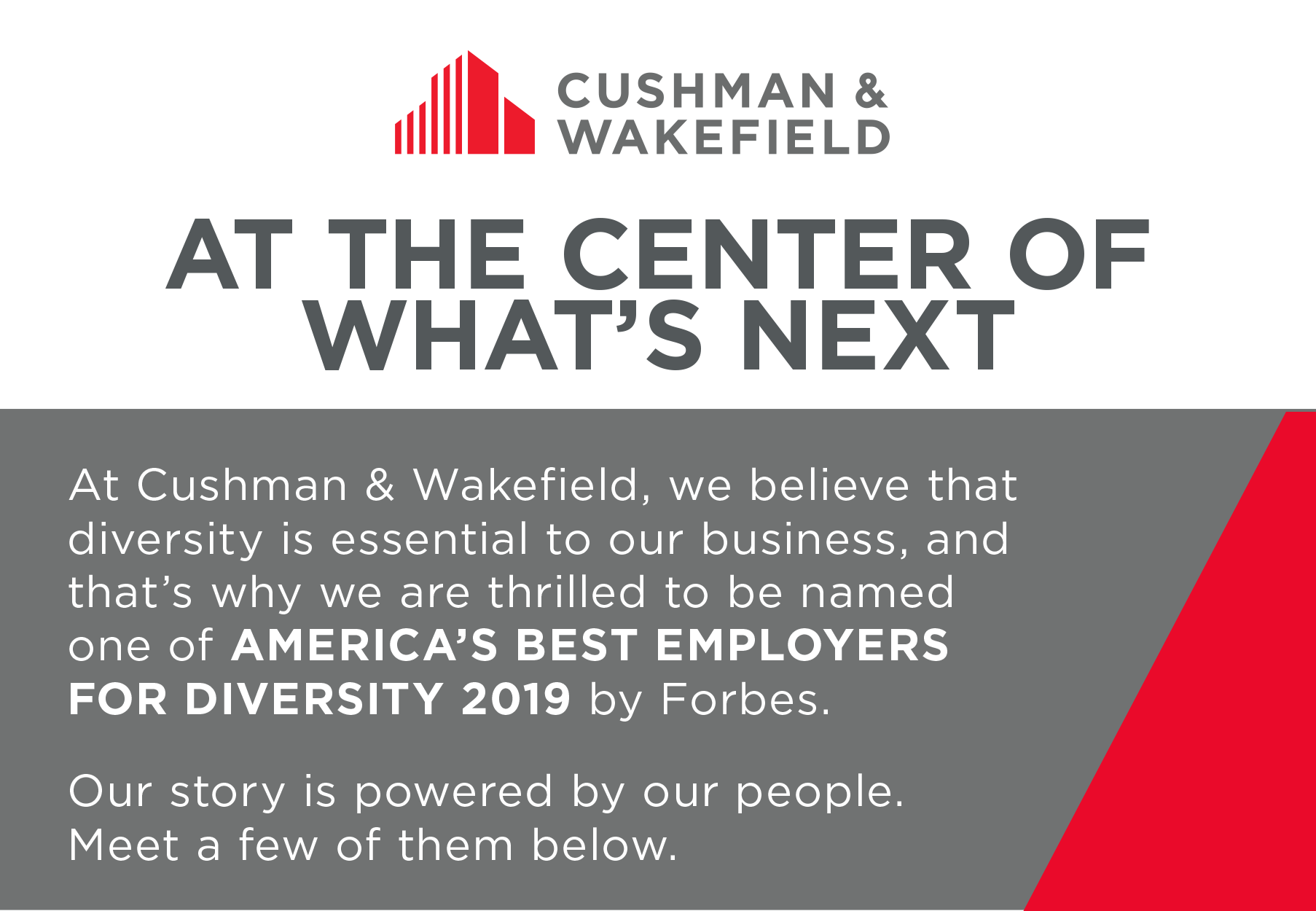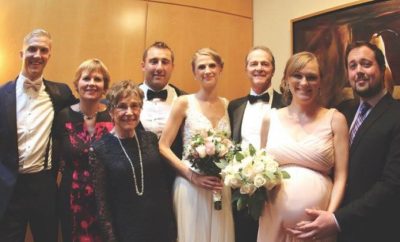| What year did you join Cushman & Wakefield, in what office, and what role? |
| 1979 as a summer student. Research and Planning Department at 50 Holly Street in Toronto. |
| What are the biggest changes you’ve seen to the way business is done over the decades? |
| The continuing evolution and complexity in deal making. Our offices were always close to the subway because we had to deliver offers/deals to the lawyers. There were no computers or emails of course, and the Fax machine had not even been invented. What were two-page offers and 10-page leases has led to the behemoth documents and negotiations we have today. Unfortunately, the documents are going to get bigger. |
| What were some high points in your career. |
| I was making the minimum when one day I received a return call asking if I did industrial leasing (she thought maybe I only did sales). This led to a 90,000-square foot listing that turned into a 20-acre land sale that included a 250,000-sf design build that led to a seven-acre land sale (and we leased the 90,000-sf listing), and, yes, I made PRT on those deals for the next two years.
I am pretty sure I would not be here if not for my father, Bill. He was one of the first employees in the new “commercial division” of A. E. LePage (which became Royal LePage Commercial and then Cushman & Wakefield). By the time I came on board, the division had become the largest commercial real estate group in Toronto and Canada for that matter. Though I had graduated from university, the job market was tight, so I accepted a summer student position. We were tasked with creating an industrial data base for the GTA by walking or driving around buildings, getting old deals, and going through municipal records to catalogue some 800-msf of industrial buildings – a project headed by Frank Camenzuli. This job introduced me to great people including Harvey Wright who was quite a visionary. He started the securitized sales of rental apartments at LePage and brought me on to the Chrysler Canada account, involving the sale of 65 car dealerships on a leaseback, 20 vacant land sites, and five large parts warehouses (I did not make PRT then as my salary was $10,500). Doug Henderson gave a chance to be a manager of the branch and John O’Bryan was smart enough to recognize I was better off in sales. Over the years I have had many great deal partners and have learned from all of them. |
| If you had to describe yourself in 3 words or less, what would they be, and why? |
| Honest and fearless. Truthfully, that is what my daughter told me after hearing her friend’s mom, who worked at Colliers, describe me that way. I thought it sounded good, so I have used that as my motto for many years, although I keep that mostly to myself. |
| If you could have dinner with any one person, living or dead, who would he/she be, and why? |
| My dad. He died far too soon. We were in Phoenix at a PRT conference together, and for the first time I had my whole family come down to stay on afterwards. When I got home, I got a call telling me that he had been rushed to the hospital. Six days later, he was gone. I had many lunches and discussions over the years with him and would love to have one more. |
| What have you liked about working for Cushman & Wakefield, and how does the firm differentiate from the competition? |
| The people. I think we have a great office, too. Many of our support staff have spent most – and some all — of their working career with us. Why? It’s not the money, because I’m pretty sure we aren’t the highest paying employer. It’s the whole ball of wax – our people and our culture. I’m not sure if that is a differentiator or not, but I do know that the grass is not always greener on the other side. |
| What are some of the secrets to your personal success? |
| Perseverance. Anyone can put together an easy deal. Completing the challenging deals is what separates the good agents from the great ones. Also, you need to adapt. Transactions and the real estate market are not the same today as in the past and it will surely be different in the future. If you are not prepared to change, you’re a goner. |
| What’s one or two things that many of your colleagues would not know about you. |
| I have three grown-up kids and recently became a grandfather. The best part about this business is that it allows you the freedom to participate in family activities. Coaching, watching, and enjoying time with them. If you are only here to make money, I think you are in the wrong business. In 2006, I was awarded the Commercial Merit Award for doing such outside activities, as well as working for a couple of charities. I wouldn’t do it any differently if I were to do it again. |
| What do you see as the biggest future drivers of change for clients and real estate strategies moving forward? |
| Portability of jobs. People entering the workforce are looking to earn money in a way that allows them to do it from anywhere. Technology will impact us in ways we do not know for certain so it will be our job to adapt and change to suit the environment. |
| What advice do you offer young people getting into the business today? |
| Have some patience and enjoy what you are doing. That is probably what I was told when I entered the workforce, but nothing comes easily, and if you don’t wake up every day wanting to go to work, go find another job. |


